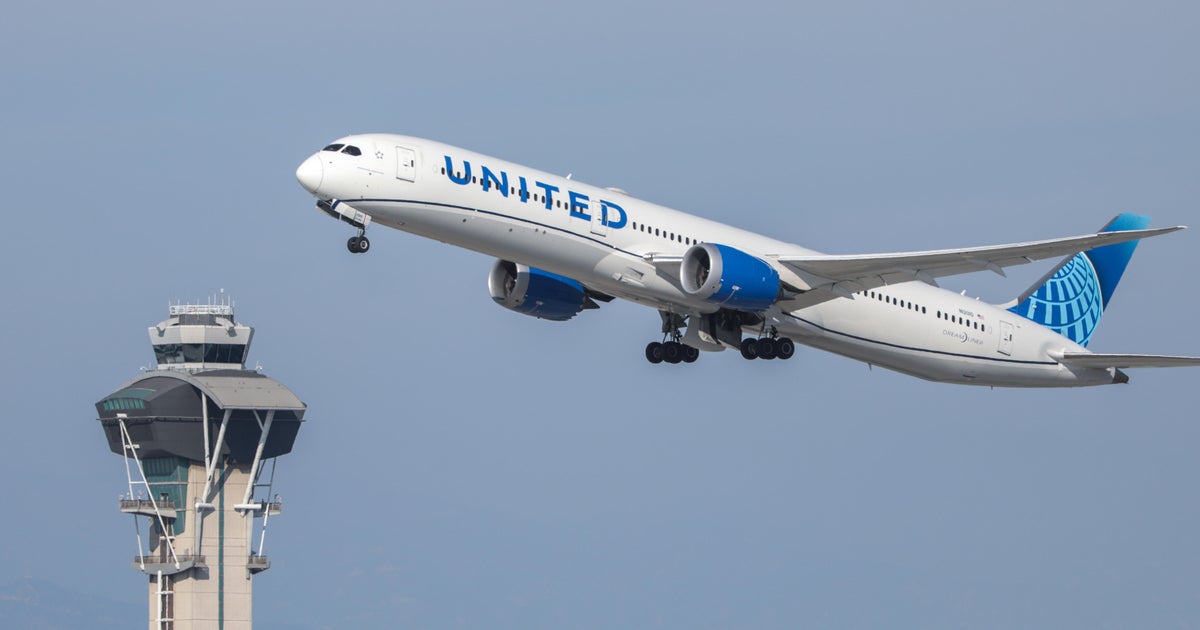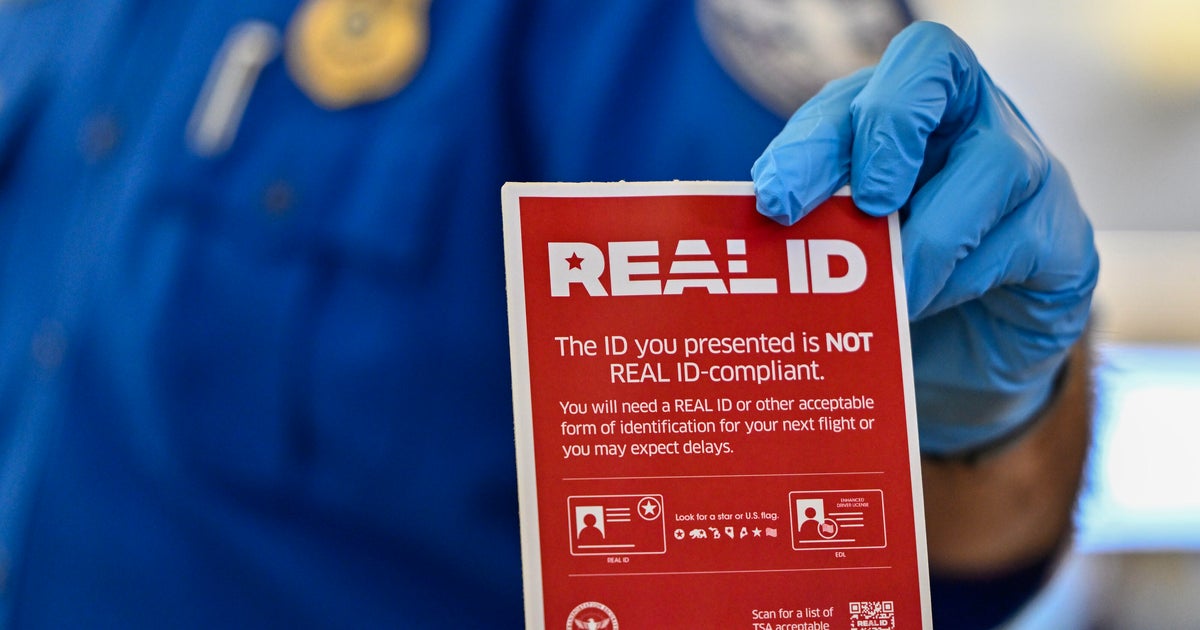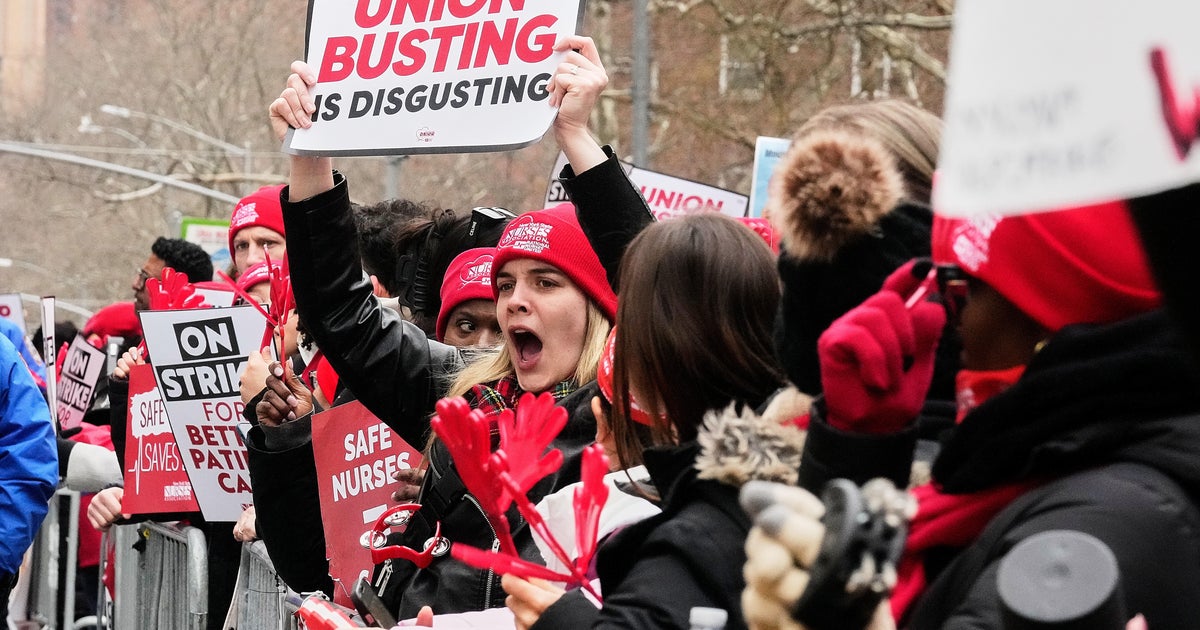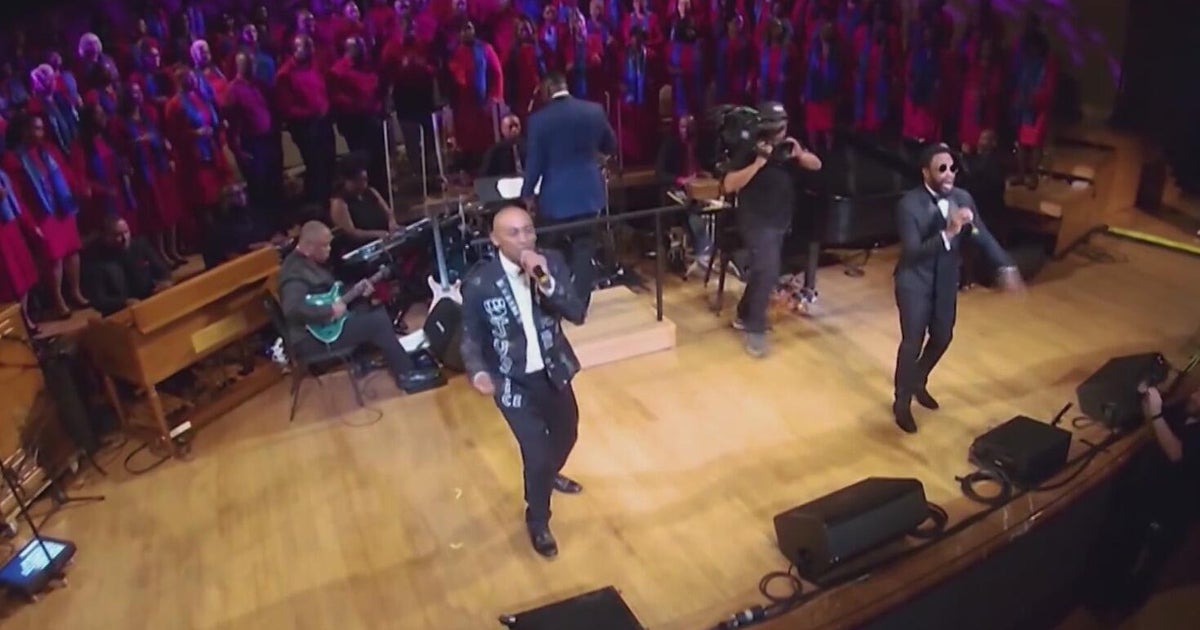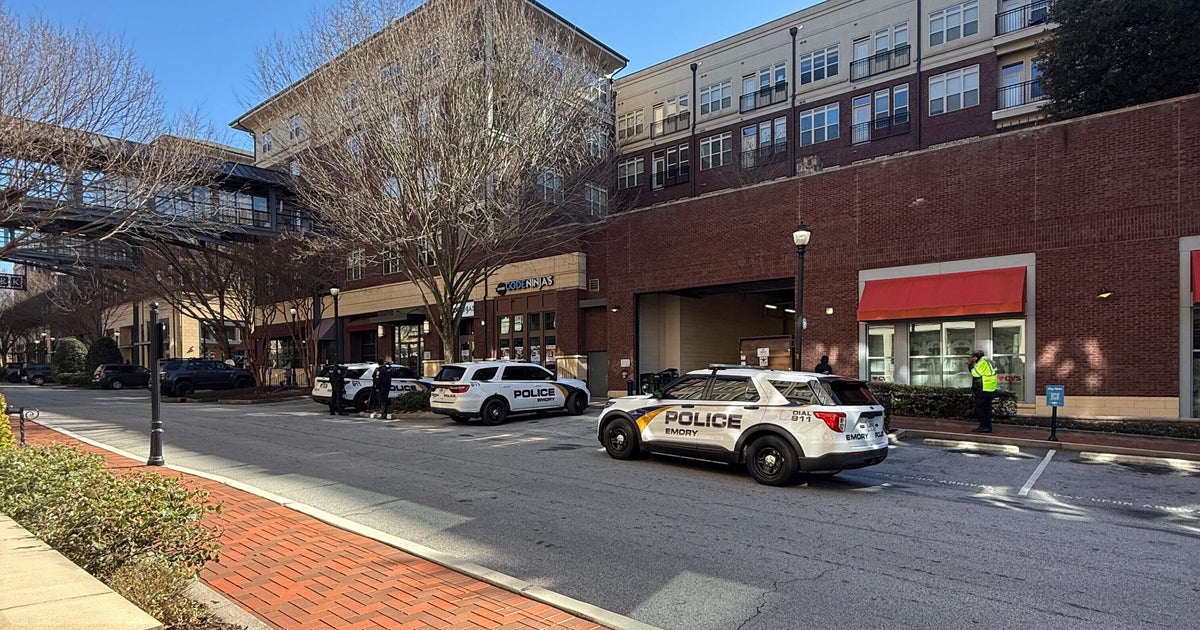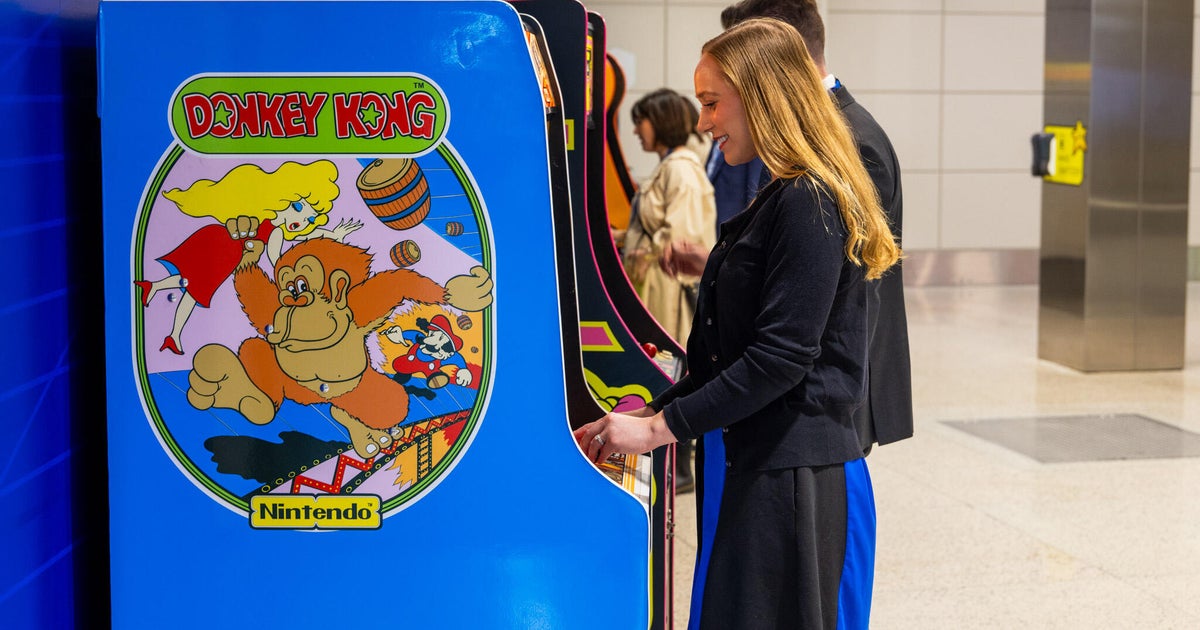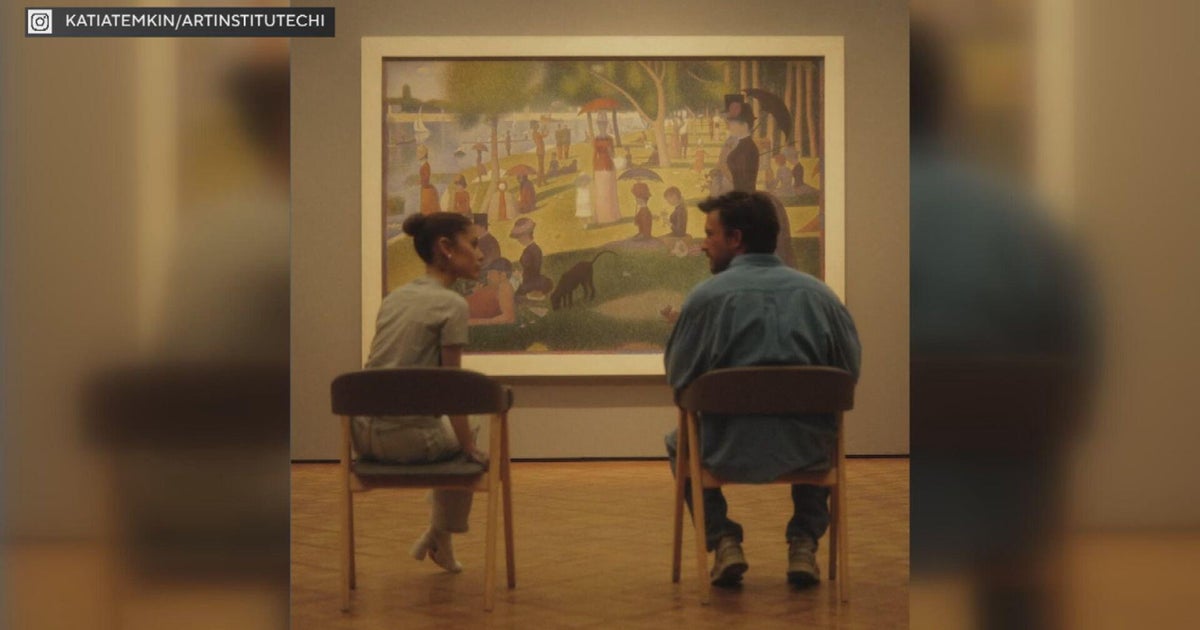CDC: 21-Day Monitoring For All Coming From Ebola Nations
Updated Oct. 24, 2014
NEW YORK (CBSNewYork/AP) -- Significantly expanding their vigilance, federal health officials said Wednesday that they would begin monitoring all travelers, even Americans, who come to the U.S. from Ebola-stricken West African nations for 21 days.
The director of the Centers for Disease Control and Prevention said the program will begin Monday, Oct. 27 and cover visitors as well as aid workers, journalists and other Americans returning from Liberia, Sierra Leone or Guinea.
EXTRAS: Fact Sheet On Ebola Screenings | More From The CDC | Ebola Q & A With Dr. Jonathan LaPook
The program will start in six states: New York, Pennsylvania, Maryland, Virginia, New Jersey and Georgia.
"This is another step to protect families, communities and health care workers from Ebola," CDC Director Tom Frieden said.
Travelers from those countries will be given information cards and a thermometer and be required to make daily check-ins with state or local health officials to report their status.
Frieden said the check-ins could be in person, by telephone, Skype or Facetime or through employers. CDC was consulting with the state and local officials to help them work that out.
The travelers would be required to report any travel plans. Frieden said if they don't cooperate, they would be immediately called in.
The announcement came as a new rule went into effect Wednesday that said air travelers from Liberia, Sierra Leone and Guinea must enter the U.S. through one of five airports doing special screenings and fever checks for Ebola.
A handful of people had been arriving at other airports and missing the checks.
A total of 562 air travelers have been checked in the screenings that started Oct. 11 at John F. Kennedy airport and expanded to Newark Liberty, Chicago's O'Hare, Washington's Dulles and Atlanta's Hartsfield-Jackson last week, Homeland Security officials said.
Four were taken from Washington's Dulles airport to a local hospital. None had Ebola.
On Tuesday, a West African passenger at Newark airport was hospitalized after reporting symptoms or having a potential exposure to Ebola.
Gov. Chris Christie said Wednesday that there is no indication that the patient has the virus and he anticipates the patient will be released from the hospital after he is interviewed by the Centers for Disease Control.
"CDC is going to have a technical assistance team visit each one of these institutions to help them in preparing and drilling and being ready," N.J. Health Commissioner Mary O'Dowd said.
The president of the nurses' union says based on the handling of the Newark passenger at University Hospital, the specialized training can't come soon enough.
"They immediately isolated the patient to another building so the general public was not ever at risk. Our concern was whether or not they had provided the training for the caregivers," Ann Twomey said.
The Obama administration has been under increasing pressure from lawmakers and the public to ban travel from the three hardest-hit West African nations. President Barack Obama says such a ban could make the situation in those countries worse and make it harder for foreign doctors and aid workers to bring the outbreak under control.
There are no direct flights from the three nations into the U.S.; about 150 fliers per day arrive by various multi-leg routes. About 6 percent of them were coming through airports that don't have the new Ebola screening, federal officials said.
Ebola Airport Checks Expand
Homeland Security Secretary Jeh Johnson said with the change, "we currently have in place measures to identify and screen anyone at all land, sea and air ports of entry into the United States who we have reason to believe has been present in Liberia, Sierra Leone or Guinea in the preceding 21 days.''
Sen. Chuck Schumer, D-N.Y., described the move as an "added layer of protection against Ebola entering our country."
"The Department of Homeland Security's policy to funnel all passengers arriving from Ebola hotspots to one of these five equipped airports is a good and effective step towards tightening the net and further protecting our citizens," he said in a statement.
Homeland Security officials at the airports use no-touch thermometers to check for fever, which can be a symptom of Ebola infection. People who have been infected with the virus may not develop a fever and illness for up to 21 days.
It's also the first day on the job for the new Ebola czar, Ron Klain, who was tapped by Obama to oversee the federal response to the disease. Klain will meet with the president and others Wednesday.
The CDC issued new guidelines Monday to better protect health care workers. CDC officials demonstrated the recommended techniques Tuesday at a training session for several thousand health care workers in New York City.
Gov. Andrew Cuomo urged the health care workers there to also use their training to educate their families and communities about Ebola.
"Keep the anxiety down,'' he said. "Keep the fear down.''
The new guidelines call for full-body garb and hoods to protect health care workers' necks; rigorous rules for removal of equipment and disinfection of hands; and a "site manager'' to supervise the putting on and taking off of equipment. The CDC cannot require hospitals to follow the guidance; it's merely official advice.
Meanwhile, video journalist Ashoka Mukpo will likely be discharged from a Nebraska hospital. He contracted the virus while in assignment in Liberia.
Dallas nurse Nina Pham, who is being treated at the National Institutes of Health outside Washington, had her condition upgraded from fair to good, the NIH said late Tuesday.
She is one of two nurses who cared for Thomas Eric Duncan, a Liberian man who came down with Ebola symptoms last month while visiting Dallas. He died Oct. 8.
The mother of Amber Vinson, the other sick nurse, said her daughter is "doing OK, just trying to get stronger'' at Emory University Hospital in Atlanta.
What exit screening looks like:
Exit screening might look a little different in each country but contains the same basic elements.
1. All travelers:
Have their temperature taken
Answer questions about their health and exposure history
Are visually assessed for signs of potential illness
2. Travelers with symptoms or possible exposures to Ebola are separated and assessed further.
3. This assessment determines whether they are:
Allowed to travel.
Not allowed to travel on a commercial flight and referred to public health authorities for further evaluation.
Entry screening in the United States:
Looking for sick travelers at U.S. airports.
Every day, CDC works closely with partners at U.S. international airports and other ports of entry to look for sick travelers with possible contagious diseases. These measures will be enhanced to detect possible cases of Ebola.
What enhanced U.S. entry screening looks like:
For each arriving traveler who has been in Guinea, Liberia, or Sierra Leone:
- CBP will give each traveler health information that includes:
- Information about Ebola
- Symptoms to look for and what to do if symptoms develop
- Information for doctors if travelers need to seek medical attention.
- Travelers will undergo screening measures to include:
- Answer questions to determine potential risk
- Have their temperature taken
- Be observed for other symptoms of Ebola
- If a traveler has a fever or other symptoms or has been exposed to Ebola, CBP will refer to CDC to further evaluate the traveler.
CDC will determine whether the traveler:
- Can continue to travel
- Is taken to a hospital for evaluation, testing, and treatment
- Is referred to a local health department for further monitoring and support
- Entry screening is a part of a layered approach. When used with other public health measures, entry screening can strengthen our efforts to battle this virus. It is important that we act as global citizens, continuing to put our full weight behind response efforts in West Africa and providing support for those traveling here from that region.
Check Out These Other Stories From CBSNewYork.com
(TM and © Copyright 2014 CBS Radio Inc. and its relevant subsidiaries. CBS RADIO and EYE Logo TM and Copyright 2014 CBS Broadcasting Inc. Used under license. All Rights Reserved. This material may not be published, broadcast, rewritten, or redistributed. The Associated Press contributed to this report.)
